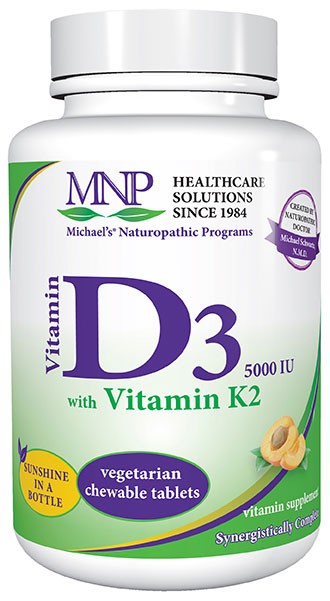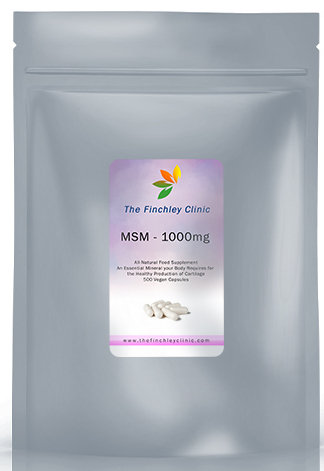 Oxylift is based on the water splitting technology developed by scientist Everett Storey, who after being involved in the development of the nuclear bomb in the 1940’s, turned his skills to healing, rather than killing people. Sounds like something out of James Bond, and possibly even hard to believe but Oxylift, Oxygen Elements Max (and a couple of rival brands that are out there which we don’t provide), are nonetheless derived from this work. Storey’s idea, was to separate the hydrogen from the oxygen found in water (H20), which then left a residue of increased oxygen and biological hydrogen which the body could use for its benefit. Of the two similar products we sell, I believe that Oxygen Elements Max is slightly stronger but it has two drawbacks. The is that it’s not vegetarian (the amino acids are the bit that is not vegetarian), the second being that it contains a small amount of preservative (potassium sorbate). Also, in my opinion Oxylift has a nicer taste. So although I definitely do not state that Oxylift is the better product (I think that individual results vary), I can say that it’s the one I usually use.
Oxylift is based on the water splitting technology developed by scientist Everett Storey, who after being involved in the development of the nuclear bomb in the 1940’s, turned his skills to healing, rather than killing people. Sounds like something out of James Bond, and possibly even hard to believe but Oxylift, Oxygen Elements Max (and a couple of rival brands that are out there which we don’t provide), are nonetheless derived from this work. Storey’s idea, was to separate the hydrogen from the oxygen found in water (H20), which then left a residue of increased oxygen and biological hydrogen which the body could use for its benefit. Of the two similar products we sell, I believe that Oxygen Elements Max is slightly stronger but it has two drawbacks. The is that it’s not vegetarian (the amino acids are the bit that is not vegetarian), the second being that it contains a small amount of preservative (potassium sorbate). Also, in my opinion Oxylift has a nicer taste. So although I definitely do not state that Oxylift is the better product (I think that individual results vary), I can say that it’s the one I usually use.
Below are our most recent customer reviews for the product. See what you think, and if you decide to try it, let us know how you get on.
Milena D ★★★★★
I was taking OxyLift nearly 4 years ago in winter to fight the flu. After 4 months I felt like I developed some heart palpitations. So I stopped it. I was taking 3 times a day 10 drops. And I forgot about it. When last year I had the modern virus and it wasn’t easy for me to recover, I remembered OxyLift. I decided to give it another chance. And here I am now, taking it for about 40 days and I feel good. I gradually increased the dose and I am taking 2 times 10 drops, usually morning on an empty stomach and some time 2 hours after lunch. So far no side effects and I manage to stay safe from respiratory problems, which was my main problem. I definitely will keep taking this product at least for 3 months before having a break for the summer.
Annie W ★★★★★
Very good product. Really helps keep my oxygen levels up and helps my breathing, particularly in these colder days. I only use a couple of drops in a glass of water that I sip throughout the day and it really helps me. I would definitely recommend this product.
Alex C ★★★★
I have been taking 14 drops of oxylift a day for about 18 months now. Initially I bought it at someone’s recommendation for an alopecia problem. While I don’t think it had any noticeable impact on the alopecia*, since taking it I no longer suffer from 3 to 4 monthly bouts of oral candida, have noticed that my joints no longer ache in the morning & I’ve only had one cold. I also sleep soundly every night & never seem to run out of energy. I can’t say that all these benefits are due to oxylift as I was pretty healthy before trying it. However, I’m sure that it has helped rid me of the oral candida. I reckon that I took it for a month or so before my general well-being improved.
* Comment by us: We usually recommend people to take Oxylift with Silica Plus to help with hair loss and alopecia. In most cases, Oxylift won’t be enough by itself.
Peter S ★★★★★
I had been trying to decide for myself which of these was the better product (Oxygen Elements Max versus Oxylift). This combination package has given me the opportunity to take one in the morning and the other in the afternoon. The bottles are the same size, the recommended dosages are basically the same and it may all come down to aperture size, but the Oxygen Elements Max seems to last significantly longer. I like both products and still cannot define which is actually better for me just by trying to pay attention to my body. Peter Stewart
Tony W ★★★★★
I have taken the full dosage of 7 drops almost from the time I began using Oxylift and didn’t have any issues ‘acclimatising’ to it. I consider it to be very effective if taken consistently rather than sporadically. It is probably too expensive for most people to take on a permanent or continuous basis, but a minimum twice daily dose for a course of one or two bottles will likely be beneficial for those experiencing (or susceptible to) infections and stress-related illnesses, as it has been for me in recent months.
Aalia A ★★★★
When i started taking this I had such bad die off symptoms! I had no energy, couldn’t do much and was tired most of the time. Because i have an underactive thyroid which means I get tired sometimes, at first I didn’t realise that it could be the drops but the tiredness carried on for days so I knew it was something else. This soon passed after a week and I felt like I had a spurt of energy. I have candida, so I’m guessing this is what caused the die off symptoms. (If this happens to you then I would suggest to lower the dosage).
I have just ran out again, and am ordering my 3rd bottle as I really feel like it helps to keep my candida in check, as well as now taking other candida products from the finchley clinic.
I take the drops in water and don’t find it has a taste to it. I would recommend this for everyone, especially if you have candida.
Laura D ★★★★★
I took 8 drops daily for about 7 months and noticed that a verruca and wart I’d had for several years gradually reduced in size until they were no longer present. So this product did seem to act against the virus causing the verruca and wart.
I recovered from a flu-like infection faster than I’d otherwise expect, when I took a larger dose of the product, e.g. 10 drops twice a day to tackle illness.
This product also seems like a good general ‘tonic’ to help maintain energy levels and positive mood.
I found the product entirely safe to use – no ‘die off’ symptoms on first taking it, for example, and no negative effects.
Diana J
★★★★★ I took OxyLift because I had a cold and I read a review of yours; Oxylift could halt the symptoms or lesson them. It worked! One satisfied customer, would definitely buy it again. Thank you.
Veronica W
★★★★★ I took this every day when I had THE virus, which I am sure helped me survive it, despite being in my late 70’s with a few other conditions
Graham W
★★★★★ I feel it is helpful and certainly keeps me fit after major surgery some years ago.
Caroline S
★★★★★ I love this product! I have had asthma since school age and thanks to taking oxygen elements max regularly plus magnesium, I no longer need my inhalers. In fact I haven’t needed the doctor even in 2 years! Super find!
Sally D ★★★★★
I take the maintenance dose daily for immunity but also find it helpful to take a higher dose when I have any health issues. I usually feel a benefit. It helps me to sleep as well.
Daisy D ★★★★★
I love this product and have reordered it several times. I first took it when I was 9 weeks into a bad bout of Covid 19 last Spring and seemingly unable to make much progress getting better. I took 10 or so drops at a time twice a day and had a very pronounced upcurve in my recovery immediately. I’ve used it on and off (mostly on) though this whole year (just one set of 10 drops in the morning) and if I feel any kind of illness coming on I up my dose and it appears to ward it off really quickly. I love it and am so happy with the difference it made in my recovery
Helen L ★★★★★
I started taking just a couple of drops of oxygen elements max per day & gradually built up to 7 drops per day which is less than the recommended dose but I noticed an increase in my energy levels after about a week. I had been feeling fatigued but I rarely feel like this now. It is expensive but,for me, it’s worth it.
JANE G ★★★★★
I’ve tried both Oxygen products now, but prefer this to the other. Really difficult to justify why, just a preference really. Both have proved excellent for kicking colds into touch. I don’t take this on a regular basis, but at the first sign of a cold I go for it. Even my husband swears by it – and he’s not easily convinced about such things. It’s a product I will always keep handy – works for us.
Gloria B ★★★★★
Took as per directions 7 drops 3 times a day. Increased when I was feeling a bit chestey to 10 drops . Felt better next day went back to maintenance dose. Great product for me.
Beatrice O ★★★★★
I bought the duo – Oxygen Elements Max and Oxylift several times in the last 6 weeks as I kept giving them out to friends who were ill. I’ve recommended the products to several people. They are both good.
I take 7 -10 drops in water daily. If I sense cold/flu coming, I take it 2- 3 times (increase it to 30 drops) and I’ve also added lemon in order to boost my immunity. For me, this is a ‘must-have’ particularly at the current time.
Fiona C ★★★★
I am a Naturopathic Nutritional Therapist and Colon Hydrotherapist. I have a very sensitive system which responds fast and it is always very evident within a day whether a product suits me. I decided to try Oxylift as a protective mechanism, alongside other immune boosting products, to fight against COVID. I have taken 1 drop daily in half a glass of water for two weeks and have noticed increased energy and clearer breathing.
* Comment from us: In most cases 1 drop per day, will not be enough to have any effect. We think this case is very unusual.
What I have noticed in addition is that Oxylift is causing me to urinate more frequently with almost a slight pressure on the bladder. I am hoping that this symptom will ease with time as I can see that this product is an important part of my anti-covid toolkit. On one occasion I took two drops in a day and this caused my face to flush and my sleep pattern was disrupted, so I will hold back on increasing the dosage.
* Another very unusual reaction, and we have not had anyone else report this. We are publishing this review anyway, as we think people should be able to read all views, experiences etc.
I am 65 and as I have not taken any medication (only homeopathy and nutritional supplements) since I was 18, I always take a quarter of a suggested dose of any product. In my view, those who treat themselves alternatively will know their body and take the appropriate dosage of Oxylift. I will be recommending it to my clients.
Grace C
★★★★★ This is a must have for me. A great immune boost. Clears any ‘murkiness’ you may feel and blasts the cells with energy. My head feels clearer, ready to start the day!
Hilary M ★★★★★
This stuff is brilliant..really helps whenever I feel an infection coming on.
Anya L ★★★★★
Thought I’d give this a try as the reviews were so good and I wasn’t disappointed. I only take it twice a day, 7 drops in a glass of water. I would say I seem to have more energy throughout the day, there’s a noticeable difference.
Susan R ★★★★★
I started a low dose of 3 drops per day of Oxylift, as I have an autoimmune disorder and am very cautious when trying new products. I am now taking 10 drops daily in water. I spread the dose through the day. My concern was swollen feet and fingers. I had previously taken another brand of capsules, with some of the same ingredients as Oxylift, with some effect. Results from Oxylift have bee very good with a marked reduction in swelling and puffiness. It is easy to take and , for me, very effective. The price is competitive and ordering/delivery easy.
Needless to say, I will be ordering more and have already recommended it to 2 friends. Thank you Finchley Clinic.
Boaz S ★★★★★
One of the best cellfood type products out there. I used it for a few years, helping me a lot with to reduce my inhaler almost to not needed at all. Recommended.
Susan N ★★★★★
I would not be without an oxygen supplement! I have used a liquid oxygen for many years. I changed from Oxylift to Oxygen Elements Max because of the fulvic acid and just to see if there was a difference. I’m not sure I noticed a difference. I tend to take just one dose of about 15 drops each morning and think I’ll take more later but rarely remember! When I first started taking oxygen my hair colour returned (grey went away!) so I presumed lots of other good things must be happening!!
Sally D ★★★★★
I have only been taking oxylift for a few weeks mainly to help immunity so results are hoped for but unknown. So far taking 3 drops twice a day and sometimes during the night of as I’ve noticed it alleviates symptoms of liver qi stagnation (Chinese medicine) and I can then relax and go back to sleep. It has an almost immediate effect on deepening my breathing. Very interesting. Thank you.
Lyndon D ★★★★★
OxyLift is a great product. It gives extra energy to the system. I would recommend it.
Helen V ★★★★★
I have had remarkable results with this alongside MSM 1000mg capsules. These drops 3 x a day and 3 MSM capsules taken with a vitamin C supplement. I’m an asthma COPD sufferer and this seems to oxygenate my body as well which gives me much more energy. As far as I’m concerned it’s a product for life. Amazing
You can find Oxylift here, and the very similar Oxygen Elements Max here, and you can purchase both of them, with a discount, in order to compare them here
 Best wishes
Best wishes
Mark G. Lester
Director
The Finchley Clinic
www.thefinchleyclinic.com
PS Check out the web site of my sister organisation www.healthfusionclinic.com, where we do Vitamin IV’s, Colonic Irrigation, Far Infrared Sauna, Pulsed Electro-Magnetic Field Therapy (PEMF), and all sorts of other cutting edge natural / non invasive / detox treatments. If you live in London or Hertfordshire, you can also pick most of our more popular products from there too if it’s urgent and you can’t wait.


 Here I want to acknowledge the wonderful Vlogger Ivor Cummins and refer people to his YouTube video found
Here I want to acknowledge the wonderful Vlogger Ivor Cummins and refer people to his YouTube video found 
 Best wishes from me and the rest of my team
Best wishes from me and the rest of my team With sneeze free and unwatery eyed best wishes
With sneeze free and unwatery eyed best wishes Best wishes
Best wishes